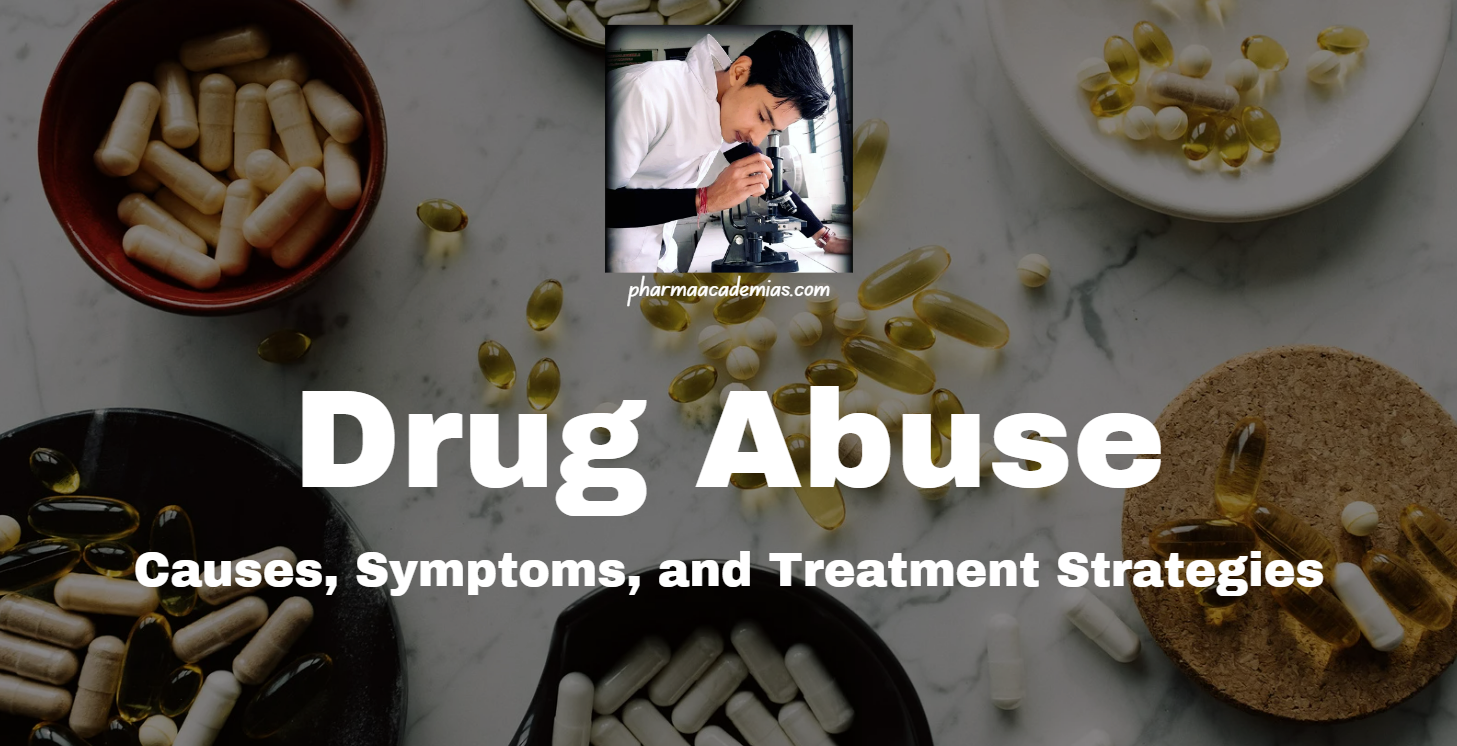Tolerance Tolerance refers to a state in which a person no longer responds to a drug or substance in the way they initially did. Over time, higher doses of the substance are required to achieve the same effect that was previously obtained with a lower dose. Mechanism – Pharmacodynamic Tolerance: …
Drug Abuse: Causes, Symptoms, and Treatment Strategies
Definition: Drug abuse, also known as substance abuse, refers to the harmful or hazardous use of psychoactive substances, including alcohol and illicit drugs. It often leads to significant impairment or distress and can affect physical health, mental well-being, and social functioning. Types of Abused Substances 1. Opioids: Heroin, prescription pain …
Drug Addiction: Causes, Symptoms, and Treatment Strategies
Definition: Drug addiction, also known as substance use disorder (SUD), is a chronic, relapsing brain disease characterized by compulsive drug seeking, continued use despite harmful consequences, and long-lasting changes in the brain. It is both a complex brain disorder and a mental illness. Types of Addictive Substances 1. Opioids: Heroin, …
Opioid Antagonists: Naloxone and Naltrexone
Opioid antagonists are medications that block the effects of opioids by binding to the same receptors in the brain that opioids target. They are critical tools in the treatment of opioid overdose and addiction. Two common opioid antagonists are naloxone and naltrexone. Naloxone Naloxone is a medication designed to rapidly …
Opioid Analgesics: Introduction, Classification, Mechanism of Action, and Side Effects
Opioid analgesics are a class of drugs commonly used to relieve moderate to severe pain. They exert their effects by binding to opioid receptors in the central nervous system (CNS) and the gastrointestinal (GI) tract. Opioid antagonists, on the other hand, block the effects of opioid agonists by binding to …
Nootropics: Definition, Classification, Mechanism of action, uses and Side effects
Definition Nootropics, also known as “smart drugs” or cognitive enhancers, are substances that improve cognitive function, particularly executive functions, memory, creativity, or motivation, in healthy individuals. The term “nootropic” is derived from the Greek words “nous,” meaning “mind,” and “trepein,” meaning “to bend” or “turn.” Classification of Nootropics 1. Racetams …






